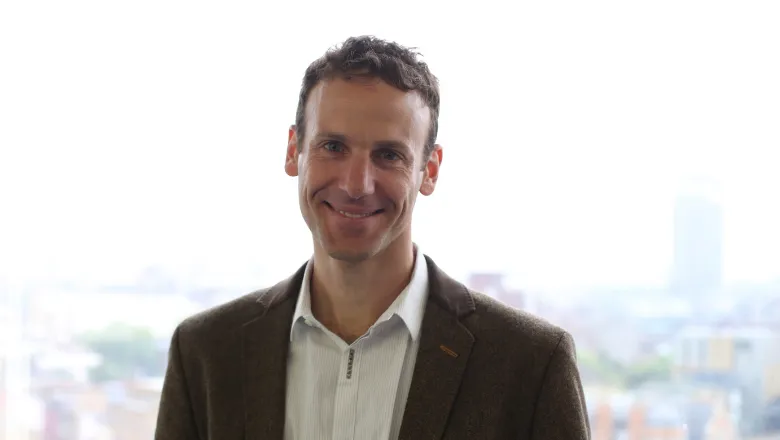19 October 2018
Professor Tom Vercauteren Awarded Research Chair by Royal Academy of Engineering
Professor Tom Vercauteren awarded the Medtronic/Royal Academy of Engineering Research Chair in Machine Learning for Computer-Assisted Neurosurgery by the Royal Academy of Engineering.

Professor Tom Vercauteren of the School of Biomedical Engineering & Imaging Sciences has been awarded the Medtronic/Royal Academy of Engineering Research Chair in Machine Learning for Computer-Assisted Neurosurgery by the Royal Academy of Engineering.
Professor Vercauteren, recently appointed to the School as Professor of Interventional Image Computing, will design new machine learning technologies to provide neurosurgeons with accurate and timely information to help plan, deliver and monitor surgical procedures. Neurosurgeons use medical imaging techniques, such as MRI, CT, ultrasound and fluorescence imaging, to identify the best surgical approach and for real-time navigational guidance. These images provide vast amounts of data that must be minutely exploited to be effective. The artificial intelligence systems developed by Professor Vercauteren will act as smart virtual surgical assistants, providing interactive, patient-specific decision support that incorporates real-time feedback from the clinical team.
Professor Vercauteren is one of seven recipients of the Research Chairs and Senior Research Fellowships who have been awarded as exceptional engineering researchers by the Royal Academy of Engineering, enabling them to address some of the biggest challenges faced by the engineering industry.
The Royal Academy of Engineering is the UK’s national academy for engineering and technology, bringing together the most successful and talented engineers from academia and business to advance and promote excellence in engineering for the benefit of society.
Professor Vercauteren joined King’s College London from University College London, where he held a position as Associate Professor and worked on interventional medical image computing projects with applications ranging from fetal interventions to brain surgery. He worked in industry for 10 years prior to that, for medical device manufacturing company Mauna Kea Technologies. To find out more about Professor Vercauteren’s work at King’s, read our interview with him here.
